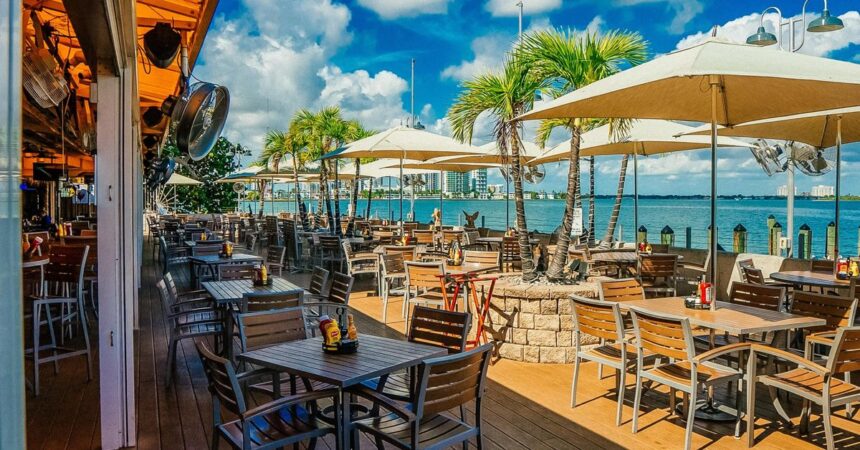Last week, it was announced that Shuckers, a beloved longtime Miami waterfront restaurant and bar, will close for good at the end of the year following a $75 million sale of the location. In its place, DJ Kygo’s hospitality group will open Palm Tree Club, a luxury restaurant and hotel complex. This news is more than just another restaurant closure; it’s a stark reminder that Miami, my hometown, is becoming increasingly less accessible to locals like me.
Shuckers, a North Bay Village spot, opened in 1989 and quickly became a local favorite for its laid-back atmosphere, inexpensive drinks, waterfront views, and casual dining. The restaurant made national headlines in 2013 when its deck collapsed, injuring dozens. A year later, it reopened with a state-of-the-art steel-enforced deck. After reopening, it continued to serve as a popular spot for game-day watch parties and low-key waterfront meals.
I’ve seen many sad restaurant closure announcements in nearly a decade of covering Miami’s food scene (RIP Scotty’s Landing and the original Tobacco Road), but this one hit harder than most. The sentiment was echoed across social media and in my group chats, with just about everyone I know expressing disappointment and frustration at the news. One comment online by to the news summed it up well: “To take an institution, tear it down and create some over priced (sic) celeb spot devoid of any real soul is sadly the way Miami [is] trending. And I say that as someone who deeply loves this city.” There’s even an online petition to save the spot.
This sale and ongoing skyline transformation are part of a larger trend in Miami. Places where locals could grab a relatively inexpensive beer and enjoy the view are disappearing rapidly. They’re being replaced by pricey developments catering to tourists and the one percent, offering $22 cocktails and overpriced, uninspired small plates. It’s a far cry from the Miami we all know and love.
This trend not only affects restaurants and bars but highlights the city’s severe housing crisis. According to an analysis by Realty Hop, Miami is the nation’s second least affordable residential market, with the average family spending $4,359.32 monthly on homeownership costs. A Miami Homes For All report reveals Miami-Dade County faces a shortage of over 90,000 affordable houses for those earning less than 80 percent of the area’s median income of $75,000 — many of whom work in the hospitality industry. As luxury developments continue replacing affordable options, long-time residents are being priced out of their neighborhoods to live and dine.
At the beginning of 2023, there was hope that Shuckers would remain a city’s mainstay for decades when North Bay Village approved a $300 million plan to rebuild Shuckers and construct an adjacent 30-story high-rise to replace the current hotel on the property. However, the current plans for Palm Tree Club — featuring a luxury hotel, an upscale restaurant, a marina with 20 boat slips, and a pool — look vastly different from what was initially promised to the community.
Miami’s rapid transformation raises serious questions about how it can continue to develop at this pace while preserving local culture. While growth and change are inevitable, we must balance moving the city forward and maintaining the unique charm that makes Miami special. Without thoughtful planning and policies prioritizing affordability, we risk losing what makes our city the unique melting pot it is.
While Palm Tree Club will undoubtedly be stunning, and I’ll likely visit and enjoy it, the loss of Shuckers represents something more significant to this town. It symbolizes how Miami is evolving in a direction that increasingly excludes its long-time residents. As more local institutions fall to make way for luxury developments, I’m left wondering: Is there still room in Miami for the people who call it home?











